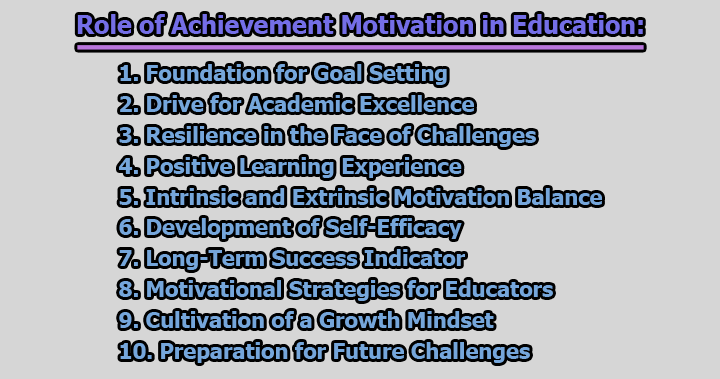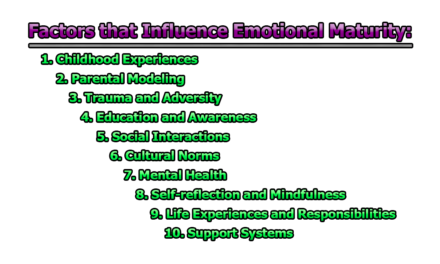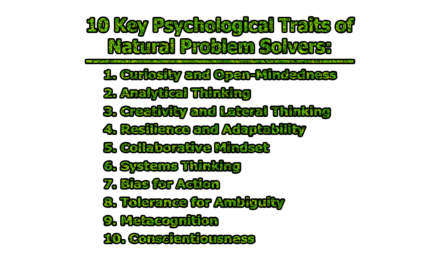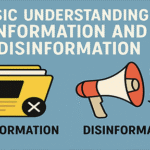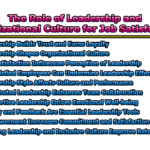Role of Achievement Motivation in Education:
Achievement motivation stands as a cornerstone in the realm of education, serving as the driving force that propels students towards success and excellence. Rooted in psychological theories and empirical research, achievement motivation encompasses a complex interplay of factors that influence how individuals set goals, approach challenges, and persist in their academic pursuits. The educational landscape, with its myriad challenges and opportunities, becomes a dynamic arena where achievement motivation shapes the learning experiences and outcomes of students. In this article, we will explore the role of achievement motivation in education.
1. Foundation for Goal Setting: Achievement motivation serves as the bedrock for effective goal setting in education. Psychologically, goal setting is closely tied to the expectancy-value theory, emphasizing the relationship between an individual’s expectations of success and the perceived value of achieving a particular goal (Eccles & Wigfield, 2002). When students possess a high level of achievement motivation, they are more likely to establish clear, challenging, and personally meaningful goals. Locke and Latham’s goal-setting theory support this idea, suggesting that specific and challenging goals lead to higher performance than vague or easy goals (Locke & Latham, 2002). In essence, achievement motivation provides the impetus for students to articulate their aspirations, shaping a roadmap for their academic journey.
2. Drive for Academic Excellence: Achievement motivation is intrinsically linked to a student’s drive for academic excellence. At its core, achievement motivation compels individuals to seek success and excellence in their academic pursuits. Decades of research, including studies by Elliot and Dweck (1988), affirm the positive correlation between achievement motivation and academic performance. Students with high levels of achievement motivation are more likely to invest sustained effort into their studies, leading to a comprehensive understanding of the material and superior academic outcomes.
3. Resilience in the Face of Challenges: One of the distinctive features of achievement motivation is its role in fostering resilience, particularly when students encounter challenges in their educational journey. Resilience, defined as the ability to bounce back from setbacks, is closely intertwined with achievement motivation. According to Bandura’s social cognitive theory (1997), individuals with high levels of self-efficacy, a component of achievement motivation, are better equipped to face challenges with confidence and perseverance. Thus, achievement-motivated students view obstacles as opportunities for growth rather than insurmountable barriers, contributing to their overall resilience in the face of academic challenges.
4. Positive Learning Experience: Achievement motivation significantly contributes to creating a positive and fulfilling learning experience for students. In the realm of positive psychology, the concept of “flow” aligns with the idea that individuals experience deep satisfaction and engagement when they are immersed in challenging, yet manageable, tasks (Csikszentmihalyi, 1990). Students with high achievement motivation are more likely to experience this state of flow, finding joy in the learning process itself. This positive experience goes beyond the traditional metrics of grades and assessments, fostering a love for learning that extends well beyond the classroom.
5. Intrinsic and Extrinsic Motivation Balance: Achievement motivation plays a crucial role in maintaining a delicate balance between intrinsic and extrinsic motivation. Intrinsic motivation, driven by internal factors such as personal interest and the inherent enjoyment of learning, has been linked to enhanced learning outcomes (Deci, Vallerand, Pelletier, & Ryan, 1991). Conversely, extrinsic motivation, derived from external factors like grades and rewards, can serve as a short-term catalyst for performance but may not sustain long-term engagement. Achievement-motivated individuals learn to integrate both types of motivation, ensuring a robust and enduring commitment to their academic pursuits.
6. Development of Self-Efficacy: The concept of self-efficacy, a central component of Albert Bandura’s social cognitive theory, is intricately tied to achievement motivation (Bandura, 1997). Self-efficacy refers to an individual’s belief in their ability to succeed in specific situations. Students with high achievement motivation tend to develop and maintain high levels of self-efficacy, as their motivation to achieve success is closely linked to their belief in their own capabilities. This sense of self-efficacy becomes a powerful driving force, influencing how students approach challenges, persist in the face of difficulties, and ultimately achieve their academic goals.
7. Long-Term Success Indicator: Achievement motivation serves as a reliable predictor of long-term success beyond the academic realm. Studies have demonstrated a strong correlation between early indicators of achievement motivation and subsequent achievement in various life domains (Bempechat, Li, Neier, Gillis, & Holloway, 2011). Individuals who cultivate a strong work ethic and a drive for achievement during their educational years tend to carry these qualities into their professional and personal lives. This long-term perspective highlights the enduring impact of achievement motivation as a guiding force in shaping successful life trajectories.
8. Motivational Strategies for Educators: Educators play a pivotal role in nurturing and enhancing achievement motivation among students. Research in educational psychology emphasizes the significance of motivational strategies employed by teachers (Wentzel, 2010). Providing constructive feedback, fostering a growth mindset, and offering choices in learning are effective approaches that educators can use to enhance students’ motivation and enthusiasm for learning (Hattie & Timperley, 2007). By understanding and leveraging motivational strategies, educators can create an environment conducive to the development and sustenance of achievement motivation in their students.
9. Cultivation of a Growth Mindset: The role of achievement motivation intersects with the concept of a growth mindset, as proposed by psychologist Carol Dweck (2006). A growth mindset is characterized by the belief that abilities and intelligence can be developed through dedication and hard work. Encouraging students to embrace challenges, view effort as a path to mastery, and learn from criticism contributes to the cultivation of a growth mindset. This mindset reinforces achievement motivation by fostering resilience, adaptability, and a positive attitude towards continuous learning.
10. Preparation for Future Challenges: A robust foundation in achievement motivation prepares students for the challenges they will face in their future endeavors. The skills and attitudes developed through a motivated approach to education, including goal-setting, resilience, and a passion for learning, are transferable to various contexts. Individuals who have cultivated achievement motivation during their academic years are better equipped to face the complexities of the professional and personal spheres, demonstrating a proactive and determined approach to overcoming challenges (Duckworth, Peterson, Matthews, & Kelly, 2007). Thus, achievement motivation becomes a key factor in shaping individuals who are ready to tackle the uncertainties of their future with confidence and capability.
In conclusion, the pivotal role of achievement motivation in education becomes increasingly apparent as we unravel its intricate influence on students’ academic endeavors. From providing the foundation for goal-setting to fostering resilience in the face of challenges, achievement motivation is the guiding force that transforms educational experiences into lifelong skills. As educators and researchers continue to explore and understand the nuanced dimensions of achievement motivation, the implications for creating supportive learning environments and effective teaching strategies become more profound. Recognizing the enduring impact of achievement motivation not only within the academic realm but also as a predictor of long-term success underscores its significance as an essential element in shaping the educational landscape and preparing individuals for the challenges beyond the classroom.
References:
- Bandura, A. (1997). Self-efficacy: The exercise of control. W. H. Freeman.
- Bempechat, J., Li, J., Neier, S. M., Gillis, C. A., & Holloway, S. D. (2011). The homework experience: Perceptions of low-income youth. Journal of Advanced Academics, 22(2), 250-278.
- Csikszentmihalyi, M. (1990). Flow: The psychology of optimal experience. Harper & Row.
- Deci, E. L., Vallerand, R. J., Pelletier, L. G., & Ryan, R. M. (1991). Motivation and education: The self-determination perspective. Educational psychologist, 26(3-4), 325-346.
- Duckworth, A. L., Peterson, C., Matthews, M. D., & Kelly, D. R. (2007). Grit: Perseverance and passion for long-term goals. Journal of Personality and Social Psychology, 92(6), 1087–1101.
- Dweck, C. S. (2006). Mindset: The new psychology of success. Random House.
- Eccles, J. S., & Wigfield, A. (2002). Motivational beliefs, values, and goals. Annual Review of Psychology, 53, 109-132.
- Elliot, A. J., & Dweck, C. S. (1988). Goals: An approach to motivation and achievement. Journal of Personality and Social Psychology, 54(1), 5–12.
- Hattie, J., & Timperley, H. (2007). The power of feedback. Review of Educational Research, 77(1), 81–112.
- Locke, E. A., & Latham, G. P. (2002). Building a practically useful theory of goal setting and task motivation: A 35-year odyssey. American Psychologist, 57(9), 705–717.
- Wentzel, K. R. (2010). Students’ relationships with teachers as motivational contexts. In D. M. McInerney & S. Van Etten (Eds.), Research on sociocultural influences on motivation and learning (Vol. 4, pp. 127–153). Information Age Publishing.

Assistant Teacher at Zinzira Pir Mohammad Pilot School and College

